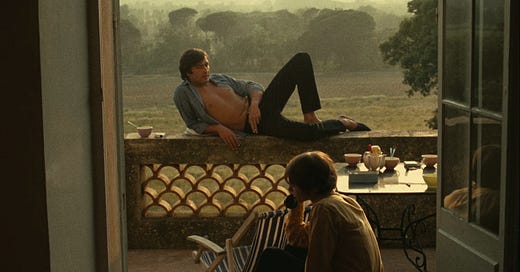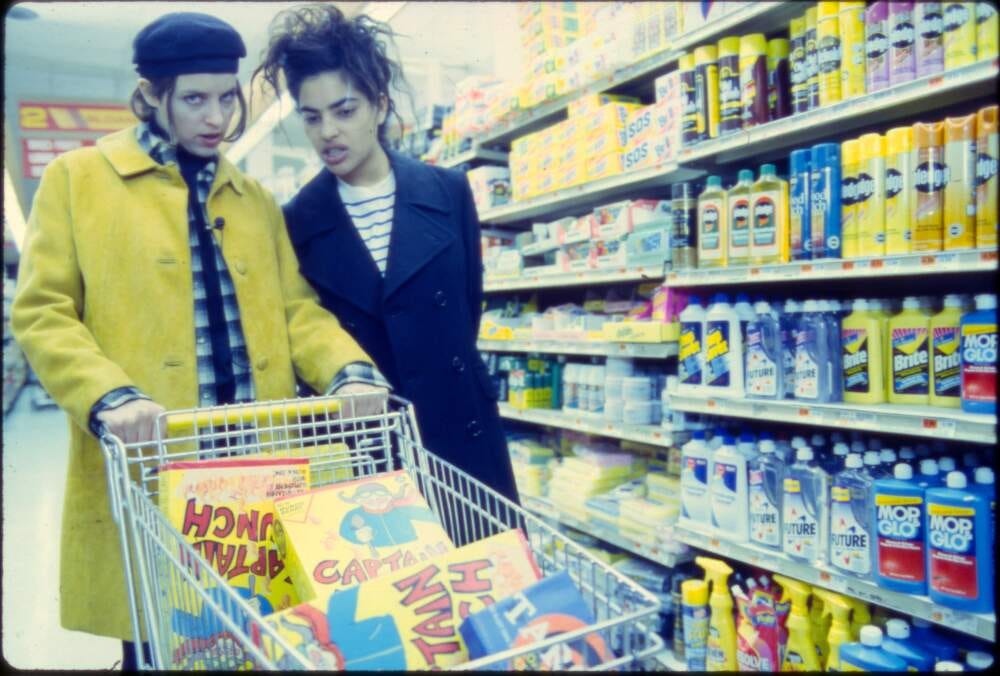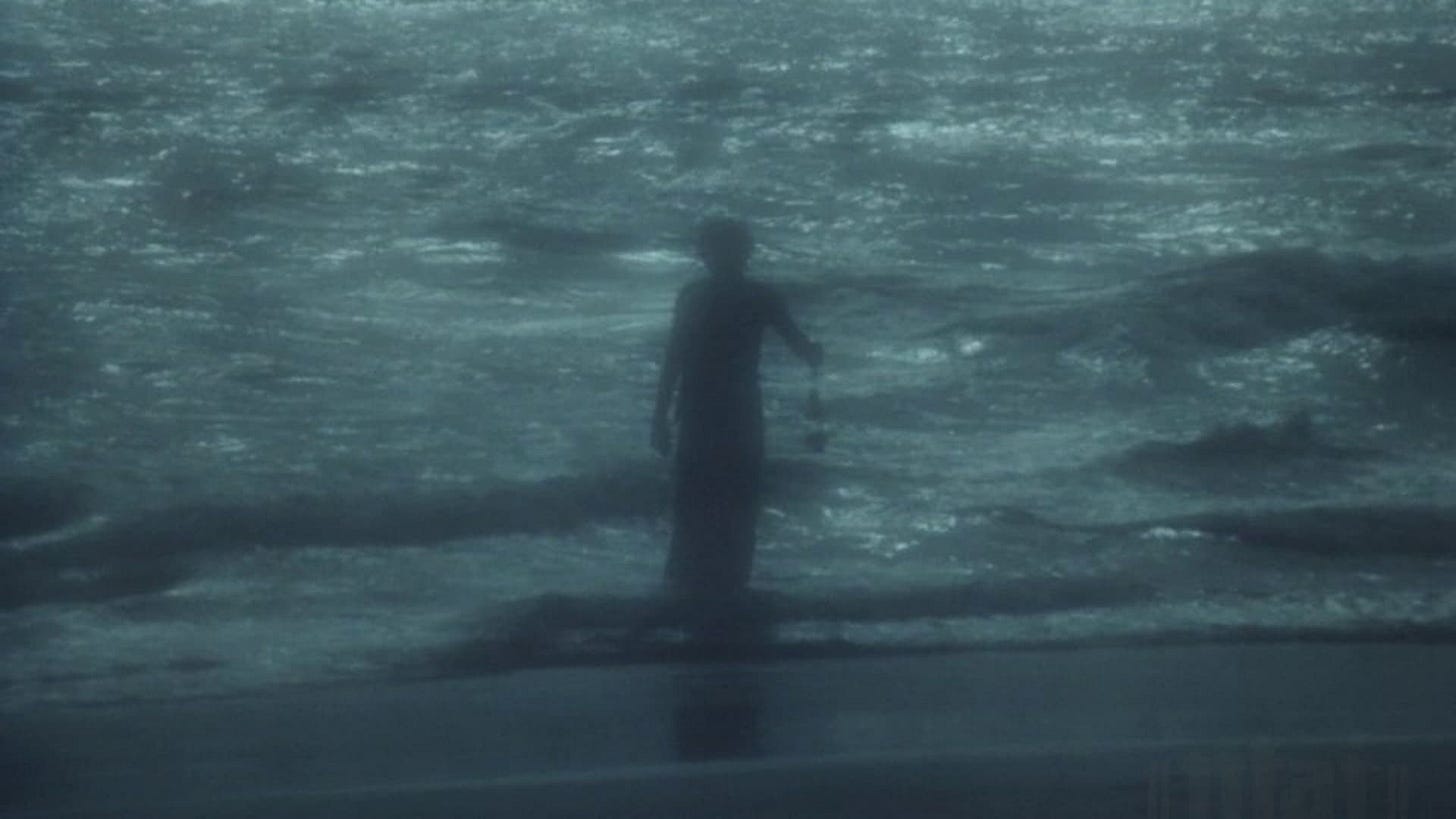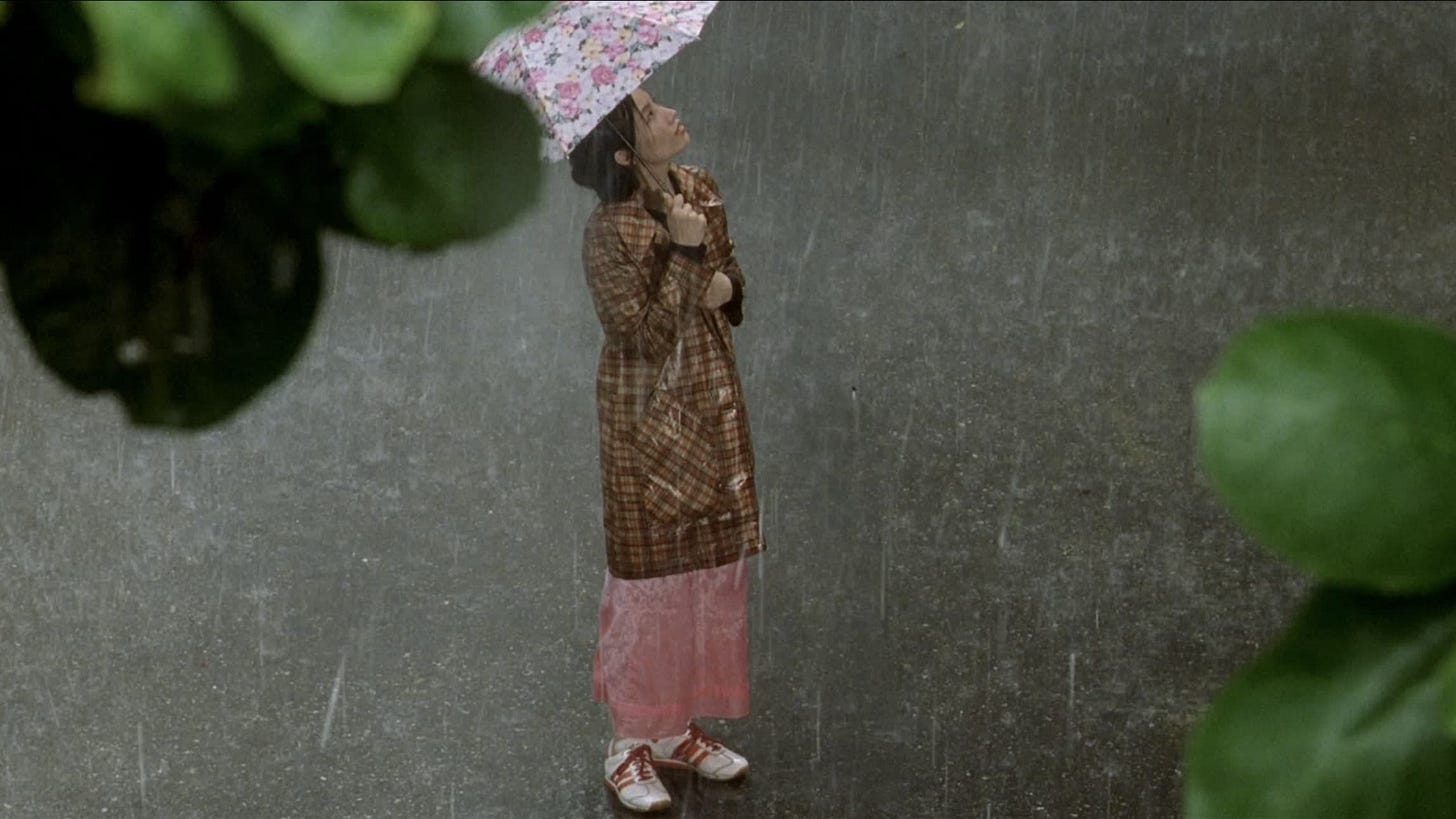NOTE: Due to an unexpected scheduling conflict, the screening of La Collectioneuse on February 6th will take place one hour later, at 18:00. All other screenings will start at 17:00, as usual.
This month in Film Club: Delusional French men try not to let their fragility get in the way of a nice vacation, lesbian New Yorkers get to the bottom of an ecological conspiracy, fishermen in India speculate about their neighbor’s divinity, and dreamy summer rain falls on three sisters in Vietnam.
If you’re interested in introducing a film yourself, contact us at uvafilmclub@gmail.com or @uvafilmclub on Instagram!
Thursday February 6th, 18:00 @ OMHP (Buzzhouse)
La Collectioneuse
Éric Rohmer, 1967 - with an introduction by Marein van den Heuvel
Éric Rohmer’s La Collectionneuse (1967), the third instalment in his celebrated Six Moral Tales, explores the complexities of moral dilemmas within human desire, often revealing the subtle contradictions of our personal perceptions. The setting? An impressionist idyll near the sun-drenched French Riviera, where two men, Adrien and Daniel, retreat to escape the pressures of city life in pursuit of tranquillity and purposelessness. Their existential mission is disrupted by Haydée, a young woman whose carefree lifestyle and unapologetic independence challenge their ideas of moral integrity and desire through physical attraction. At its core, the film provides a podium for masculinity, examining how Adrien and Daniel try to hold their fragile self-images together through intellectual delusions. However, this stage is not made for applause, but to pull the rug underneath the brittle footwork of these two men and expose their façade of intellectualism as a toxic defence mechanism. The interplay between the three characters slowly transforms the veneer of a perfect summer escape into a love triangle fuelled by insecurities, jealousy and a whole lot of emotional tension. Not only does it question the notions of freedom, responsibility, and authenticity within desire, it also forces us to ask: are any of them truly free, or are they all ensnared by the very illusions they have created?
Thursday February 13th, 17:00 @ OMHP (Buzzhouse)
Fresh Kill
Shu Lea Cheang, 1994 - with an introduction by Martina Furlan
Director Shu Lea Cheang described her film as “eco cyber noia,” a term she coined to capture the deep integration of networking technology into everyday life and a future where global media empires collide with hackers. The story follows Shareen and Claire, a working-class lesbian couple, and their daughter, Honey, as they become entangled in the conspiracy surrounding the Fresh Kill Landfill on Staten Island. Their lives take an unexpected turn when an environmental disaster begins to impact their community -- a corporate cover-up involving toxic waste disposal and contaminated seafood traced back to a multinational conglomerate. As they delve deeper, they find themselves caught in a web of conspiracies, media deception, and underground resistance.
Thursday February 20th, 17:00 @ OMHP (Buzzhouse)
Esthappan
Govindan Aravindan, 1980 - with an introduction by Nimaye Nambiar
A mystical figure is summoned on the shores of a small fishing village in Kerala, India. He lies on the sharp rocks, which stitch the ocean’s water with a land and people that drink from it. Some call him Christ, others call him a thief; we see and hear of our (beloved) protagonist, Esthappan, through the testimonies of others. Govindan Aravindan’s eponymous film can’t help but linger on such an apparition, on a face textured by such restraint. As documentary seeps into fiction, Biblical deeds submerge in societal norms, and images coalesce with sound, Aravindan’s poetic style takes on a liquid form. A spiritual presence permeates the film, and like a tide, dwindles and intensifies with rhythmic persistence. Our Esthappan, and his eyes, especially his eyes, can only function on desire — a desire for preservation, of land and culture. Aravindan’s film remains an underrated gem of Malayali New Wave cinema, a must-watch for all :)
Thursday February 27th, 17:00 @ OMHP (Buzzhouse)
The Vertical Ray of the Sun
Tran Anh Hung, 2000 - with an introduction by Gia Tue Trinh
"I wanted my film to feel like a caress. It had to have a gentle smile floating through it, a sort of floating feeling." – Tran Anh Hung, in an interview with Trevor Johnston for the London Independent.
The final film in Tran Anh Hung’s Vietnam trilogy—The Vertical Ray of The Sun (2000) presents a multisensory, picture-perfect portrayal of summertime in Hanoi. The film follows stories of three sisters: Suong, Khanh, and Lien—two married, one single—as they navigate their familial and love life in the idle rhythm of daily happenings. Their intertwined lives unfold amidst the poetic beauty of Vietnam’s lush tropical landscape and ritualistic practices, yet beneath it lies the emotional turmoil of infidelity. With a hybrid approach to cinema shaped by his exposure to French cinema and deep attachment to his Vietnamese heritage, Tran Anh Hung crafts a rather nostalgic and dreamlike vision of Vietnam. Like a gentle touch of the summery rain on the skin, the meticulous mixture of languid pacing, adrift camera, and atmospheric soundscape generates a tactile assemblage of familial bonds, longing, and quiet emotional turbulence. This approach not only offers the audience a sensory comfort but also prompts critical reflection on cultural hybridity and the representation of femininity through the cinematic language of a male diasporic filmmaker.






